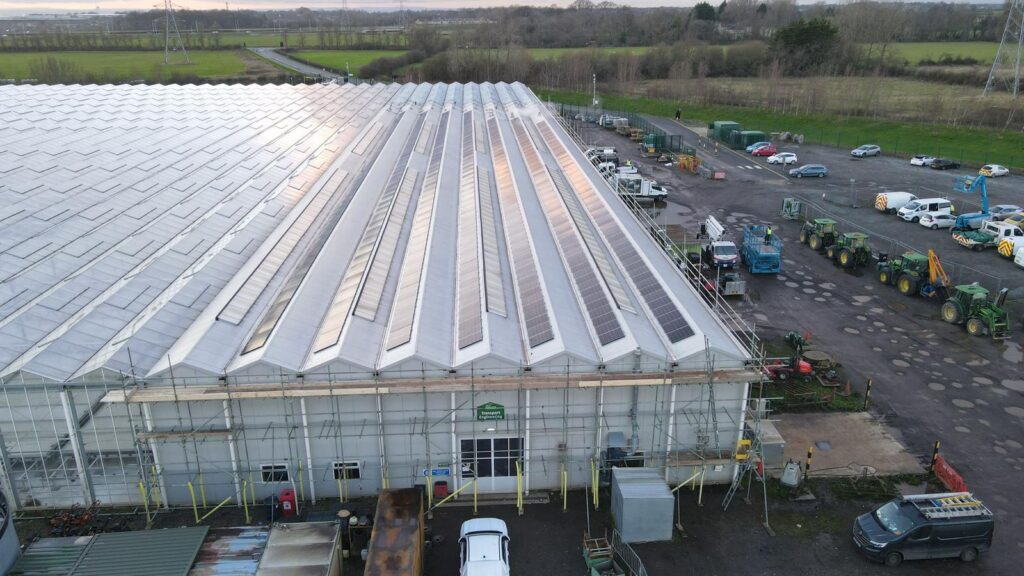Research shared today by Recycle Your Electricals shows that the copper in 1.3bn unused or binned electricals, including 627m cables, could be worth £266m and provide 30% of expected demand.
A new campaign aims to get us all to recycle unwanted cables and electrical equipment, and provide a wealth of much-needed copper before demand outstrips supply.
Photo by Cable ConfusionNew research from the campaigning group Recycle Your Electricals reveals that there is a treasure trove of 38,449 tonnes of copper to be found in UK households, squirreled away in unwanted and thrown away electricals. The authors say this is enough to build 1,240 copper Statues of Liberty!
We’ve probably all got a box or bag of unused cables stored away somewhere. It doesn’t seem very much – individually. But the research suggests that each UK household throws away or stashes an average 23 cables. Taken together, it’s a huge, untapped resource.
Just the 627m binned or unused cables contain some 3,252 tonnes of copper – and would reach to the Moon and back.
In 2023, the UK used between 250,000 and 280,000 tonnes of copper, with between 50,000 and 60,000 tonnes consumed by the automotive industry and between 35,000 and 45,000 tonnes used in consumer durables such as washing machines and electricals. If these items are thrown away rather than recycled, a huge volume of copper is effectively lost.
These findings are important given the fast-growing gap between the amount of copper produced and demand for the raw product. Recent analysis by Bloomberg Intelligence reveals by 2033 the gap globally will be over the order of 6.5 m tonnes, and that a great deal more recycling is essential.
The volume of household copper identified by Recycle Your Electricals would be enough to meet the UK’s annual demand in technology.
According to the Royal Society of Chemistry, some 347,000 tonnes of copper is needed by 2030 to build wind turbines and solar panels. Some 30% of this could be produced from recycled copper that is currently being thrown away.
What’s more, demand is soaring and copper is becoming more scarce, while the mining of raw materials has social and environmental impacts.
A key issue here is education. Some 44% of respondents to a survey didn’t know copper is the most commonly used metal in electrical cables – indeed, cables contain at least 20% copper. To raise awareness, Recycle Your Electricals is launching ‘The Great Cable Challenge’ to coincide with International E-Waste Day on October 14. The aim is to get households, communities, local authorities, retailers and schools across the UK to work together, with a target of recycling 1m cables.
Grant Sporre, Senior Analyst in Metals and Mining at Bloomberg Intelligence, says: ‘Supplying the world’s copper requirements over the next 10 years is going to be challenging, with the market potentially facing severe shortages in five to 10 years. All the shallow, easy-to-extract copper deposits have been mined out. Securing social and environmental approval to build new mines is becoming harder, and it can take up to 15 years to commence mining. This, together with the growing demand for copper and the drive to decarbonise, is going to require a significant amount more copper.
‘The building of renewable power generation in the form of wind and solar farms, and the switch from petrol and diesel cars to electric, could keep copper demand growing at 2.5 to 3% per annum. Therefore the gap between supply and demand could grow to as much as 6.5 million tonnes globally by 2033. Better recycling practices and efficiencies will be needed to close this gap. Increasing the proportion of recycled copper to 50% from current levels of 30% would be a significant challenge for global supply chains but could potentially meet the additional demand.’
Scott Butler, Executive Director of Recycle Your Electricals, adds: ‘Fess up time everyone – we all have our own stashes of unused or broken electricals. But it’s time that we realised the value and power of the silent majority; the hidden treasures inside our homes. We need to start “urban mining” and help protect the planet and nature from the harmful impacts of mining for raw materials and instead value and use what we have already.
‘People may not realise that cables and electricals contain valuable materials, not just copper, and that if binned or stashed, we lose everything inside of them when we don’t recycle them into something new. That’s why we’re starting with the Great Cable Challenge. Doing the right thing by your old and unwanted electricals has never been easier; with over 26,000 recycling points around the UK. Just check our Recycling Locator for yours – anything with a plug, battery or cable can be reused and recycled and there’s somewhere near you to do it.’
In related news:
Why switching from VPNs to ZTNA could protect the public sector
UK Government brings together tech experts to oversee ‘digital centre’ creation
Interview: Shirah Bamber, Preston’s new Innovation Ambassador

















Leave a Reply